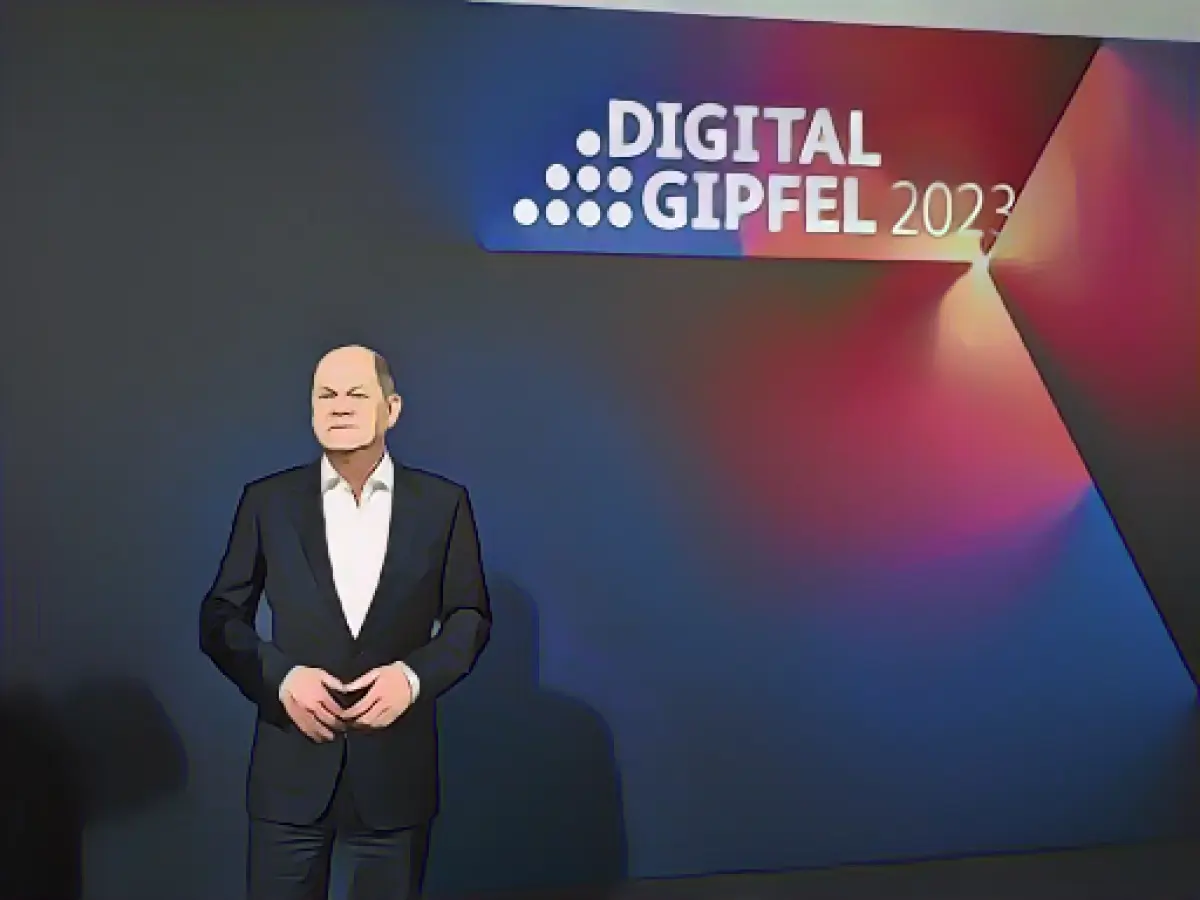Federal Chancellor "confident" about chip factory subsidy
Following the far-reaching budget ruling by the Federal Constitutional Court, Federal Chancellor Olaf Scholz (SPD) is confident that the planned ten billion euros in subsidies for the construction of a chip factory in Magdeburg can continue to flow. "We want to continue to drive forward the modernization of our economy, and semiconductors and the semiconductor industry are part of that," said Scholz at the German government's digital summit in Jena. "You don't see me here now as a person without confidence."
However, the Chancellor did not use his appearance at the panel discussion to firmly guarantee the subsidies. "We can't shake the answer out of our hands now, we have to work hard for it."
The Federal Constitutional Court had declared a reallocation of 60 billion euros in the 2021 budget to be unconstitutional. The federal government is therefore not allowed to use funds intended to combat the coronavirus crisis for climate protection. This could have a major impact on the so-called Climate and Transformation Fund, from which the federal government wanted to pay for numerous funding programs.
The US chip manufacturer Intel is planning to build a new chip factory in Magdeburg. The investment amounts to around 30 billion euros, with the state planning to contribute around 10 billion euros. The first chips are to be produced in the state capital of Saxony-Anhalt from 2027.
Habeck also in favor of continuing the chip plans
Prior to Scholz's appearance, Economics Minister Robert Habeck had already spoken out in favor of continuing the multi-billion euro chip plans. The Green politician said that following the ruling from Karlsruhe, it would not only be possible to implement projects for which a formal funding decision had already been made. Following the budget freeze, the Vice-Chancellor said in Jena that the funding of all projects that have already received a formal funding decision is secure. "However, the reverse conclusion would be inadmissible in my view."
The chip project in Magdeburg is seen by representatives of the digital industry as a significant milestone on the road to digital sovereignty because it reduces dependence on Asian chip manufacturers. However, the President of the Ifo Institute, Clemens Fuest, is critical of the project: "At the moment, politicians are handling the money quite loosely and distributing subsidies with dubious justification, such as the 10 billion for Intel in Magdeburg. The ruling now forces many things to be put to the test," said the economist after the decision from Karlsruhe.
- The Federal Government, led by Olaf Scholz, remains optimistic about proceeding with the 10 billion euro subsidy for Intel's planned chip factory in Magdeburg, despite the recent ruling by the Federal Constitutional Court.
- Scholz emphasized the importance of semiconductor technology and the semiconductor industry in driving Germany's economic modernization during his speech at the digital summit in Jena.
- Although Intel is planning to invest around 30 billion euros in the Magdeburg chip factory, with the state contributing 10 billion euros, the approval of the subsidies hinges on rigorous efforts by the government.
- Despite the budgetary constraints, the Federal Government remains committed to its plans for a chip factory in Magdeburg, an initiative that is viewed as a significant step towards digital sovereignty by industry representatives, but criticized by some economists for its financial Subsidy allocation.
Source: www.dpa.com








